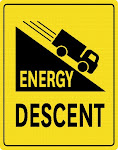Relations of learning
Monday, August 5, 2013
Taking our eleven year old, Zephyr, out of school has been a long-awaited blessing and I'm slowly developing a teaching method which is increasingly simple, involving only walking and being open. Learning can't be quantified when we happen across a jelly fungus called Yellow Brain (Tremella mesenterica). An old and highly sophisticated organism that attaches itself to its food source, this saprotrophic fungus, like most fungi, help decompose dead matter and turn it into soil. This understanding of life, this directness of contact with earthly processes, makes our walks about relationships.
Today we walked across the town's lake bridge and noticed the degrading pebble-mix concrete barrier and the lichen covered cherry plum and the grey melancholy of deep winter. Our blood and woolen warm engagement with these cold elements and our closeness together as father and son brought a quietness to us both. A simple joy that encouraged openness.
In the forest on the edge of town we noted that the numerous little mounds of rabbit droppings are partnered with an ancient moss (Polytricum sp.) and when we later bumped into a friend on his mountain bike traversing another part of the town's edge we learned that it is the buck rabbit that makes these little mounds as territorial markers, as nitrogenous cairns, that the spores of such moss so obviously gravitate to in order to make an easier life.
As we walked and talked of such connectivity, we discussed the many different type of relationships that exist in life – the mutualistic, the parasitical, predator-prey, the advantagious and the loving. None of which are exclusively human, as Zero, our kin dog Jack Russell likes to remind us in his own particular creaturely way, and who nearly always joins us on our homeschool adventures, using senses we've long lost but surely need to rescue.
Read more...









